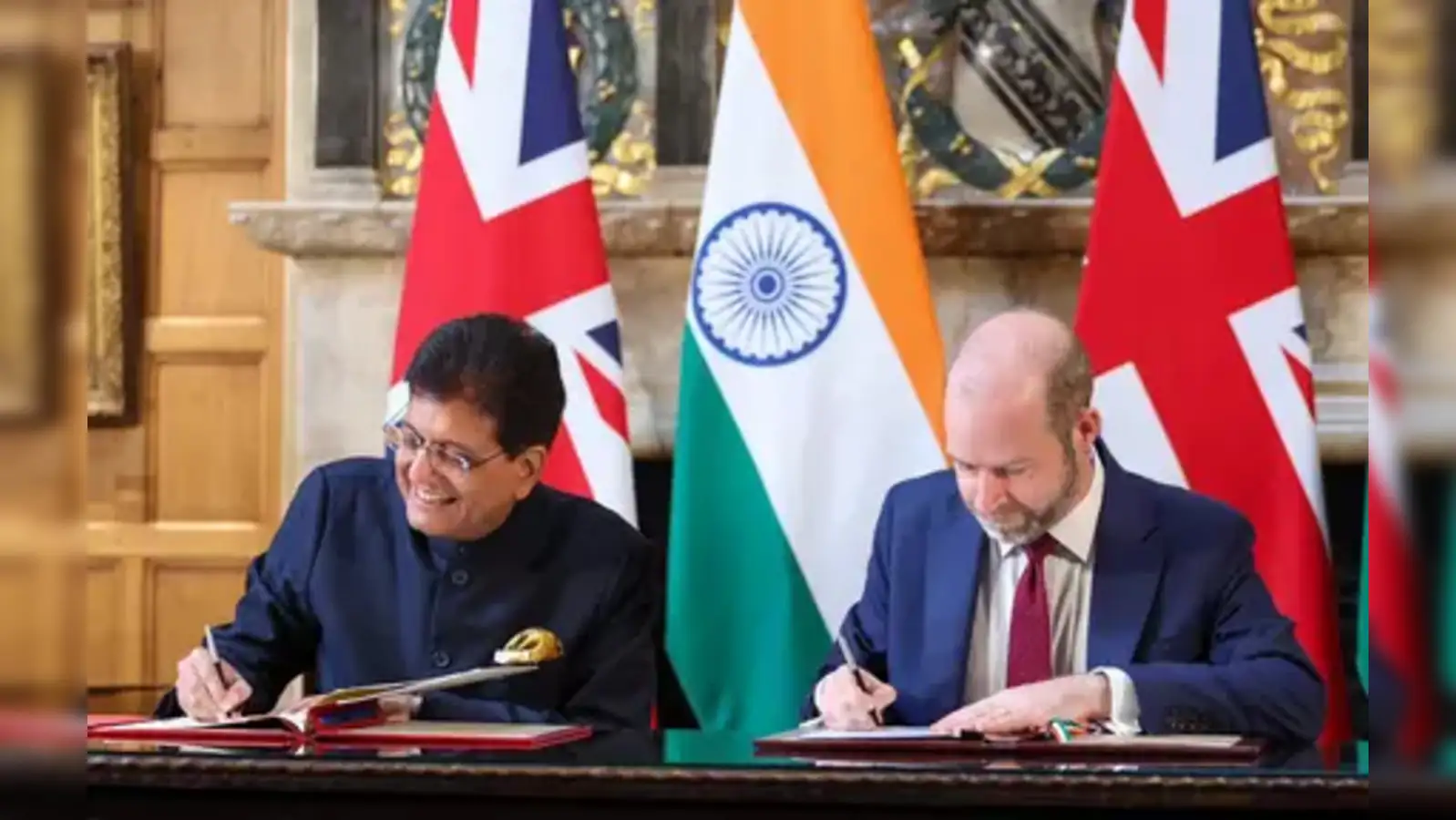India Achieves Safeguards for Key Sectors in UK Free Trade Agreement

Only a quarter of the United Kingdom’s exports by value will gain immediate duty-free access to the Indian market, as the Indian government has decided to safeguard several sensitive sectors. Commerce Secretary Sunil Barthwal announced these developments, highlighting that specific rules of origin have been established to prevent transshipment and ensure that only qualifying goods benefit from the trade agreement. The comprehensive economic and trade agreement (CETA), signed on July 24, marks a significant step in India-UK relations, reflecting India’s evolving economic landscape.
Limited Duty-Free Access
The Indian government has confirmed that only about 25% of the UK’s exports will enjoy immediate duty-free access under the new trade agreement. Sensitive sectors such as dairy, cereals, millets, pulses, vegetables, and high-value items like gold, jewelry, lab-grown diamonds, and specific essential oils have been protected. Additionally, critical energy fuels, marine vessels, used clothing, important polymers, smartphones, and optical fibers are also excluded from the deal. This cautious approach aims to shield India’s domestic industries while still fostering international trade.
Gradual Tariff Concessions
For strategically important goods, India plans to implement tariff concessions gradually over periods ranging from five to ten years. This phased approach is designed to bolster domestic manufacturing, particularly under initiatives like ‘Make in India’ and production-linked incentive (PLI) schemes. Barthwal emphasized that the agreement is distinct from India’s previous free trade deals, showcasing the country’s transition into a more mature economy. He noted that India is now addressing areas that were previously overlooked in past agreements, signaling its shift towards developed nation status.
Balancing Sensitivities and Strengths
Barthwal described the agreement as a careful balance between the sensitivities and strengths of both nations. He remarked on India’s desire to move away from the label of a “tariff king,” a term previously used by former US President Donald Trump. The commerce secretary highlighted that free trade agreements (FTAs) bring certainty and predictability to businesses, which is a key benefit of the UK FTA. He reiterated that both countries have protected their respective sensitivities, resulting in a mutually beneficial agreement.
Future Prospects and Capacity Building
As the UK prepares to ratify the CETA, which may take less than a year, India plans to use this time to enhance the capacity of its exporters. The government is collaborating with state governments and export promotion councils to assess the impact of the agreement. Barthwal mentioned that detailed studies are underway to ensure that exporters are well-informed about leveraging the deal. Furthermore, India and the UK have agreed to negotiate mutual recognition agreements (MRAs) to facilitate the movement of professionals, including nurses and architects, to the UK. This initiative aims to ease non-tariff barriers and improve regulatory systems, enhancing the overall trade relationship between the two nations.
Observer Voice is the one stop site for National, International news, Sports, Editor’s Choice, Art/culture contents, Quotes and much more. We also cover historical contents. Historical contents includes World History, Indian History, and what happened today. The website also covers Entertainment across the India and World.
Follow Us on Twitter, Instagram, Facebook, & LinkedIn

